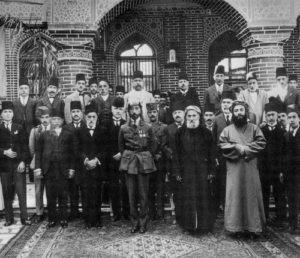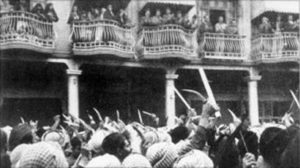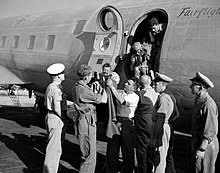Emily Benichou Gottreich ~ Historicizing the Concept of Arab Jews in the Maghrib
 Jewish Quarterly Review – Volume 98, Number 4, Fall 2008 – University of Pennsylvania Press
Jewish Quarterly Review – Volume 98, Number 4, Fall 2008 – University of Pennsylvania Press
To begin, a few quick observations about the concept of the “Arab Jew” that prompt the current intervention: (1), it is largely an identity of exile; (2), it implies a particular politics of knowledge vis-à-vis the Israeli-Palestinian conflict and larger Zionist narrative(s); (3), it was originally theorized from within the frameworks of, and remains especially prominent in, specific academic fields, namely, literary and cultural studies.1While clearly recognizing the significance of the concept of Arab Jews to post-Zionist discourse, not to mention the groundbreaking contributions of those who have revitalized the term in recent years, this essay will nonetheless argue that these three factors have, to varying degrees, converged to keep the discourse about Arab Jews limited to the semantic-epistemological level, resulting in a flattened identity that is both historically and geographically ambiguous. Developed in conversation with and presented here alongside the related essay by Lital Levy, this essay questions the presumed cultural (i.e., historical) unity inherent in contemporary articulations of the Arab Jew from a Magrhibi perspective. That is, I will try to imagine how Arabness and Jewishness may have intersected in the Maghrib—and particularly in Morocco—at pivotal junctures in the past. Such efforts at historicization, it is hoped, will allow for much-needed nuance and specificity to accrue to this important identity-category, lending the concept of “Arab Jews” meaning beyond merely the ethical or political.
Read more: https://muse.jhu.edu/article/252138


